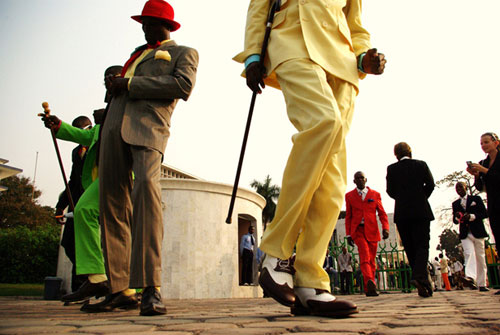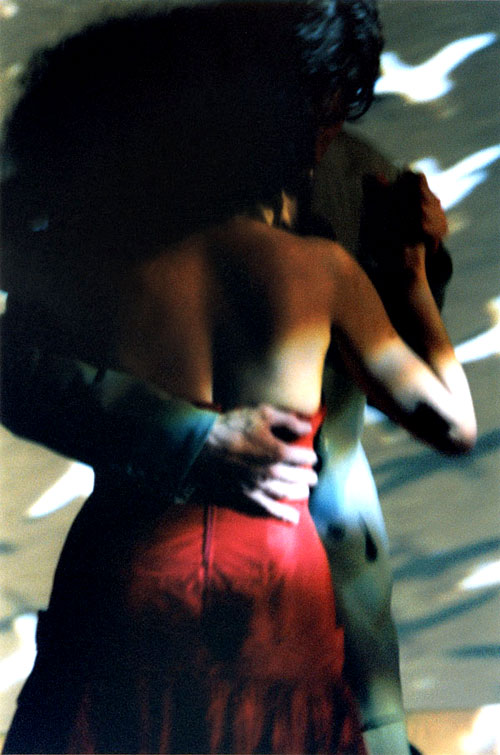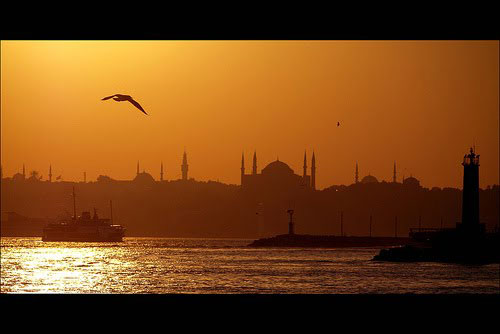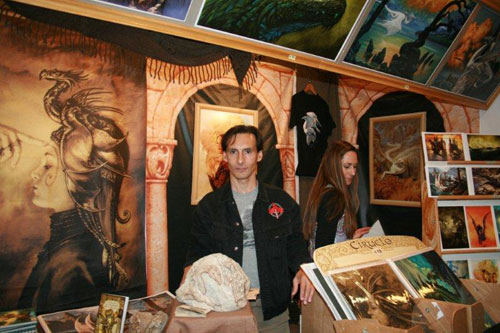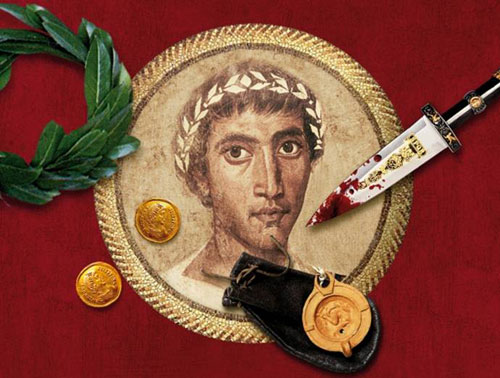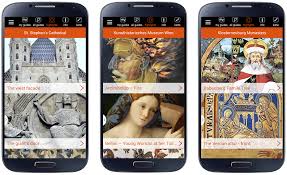Mónica Boixeda
Alessi´s in Florence is a wine institution. They have everything which is produced in the region.
Mónica Boixeda
The chocolate shop of Andrea Bianichini in Florence is paradise for those of you with a sweet tooth.
Mónica Boixeda
Frieze Art Fair is the biggest event dedicated to contemporary art in London.
Mónica Boixeda
Going to Helsinki is a good idea for the end of autumn, a cosmopolitan city which also, for its low buildings, its parks and the sea, offers itself intimate and welcoming, especially for those of us who don´t like high seasons and prefer to visit cities at those times which we can mix with the locals. Among the places you can´t miss visiting are the Kiasma Contemporary Art Museum and, in November, the proposals are unmissable. On the 27th of November, an exhibition which has been on since April is closing: ARS 11. ARS 11 is an exhibition which investigates contemporary art in Africa, both from artists who love on that continent as from artists who are descendants from African countries who live around the world. Inside this exhibition, on the weekend of the 5th and 6th, you´ll be able to see ´Exposition Universelle´, a choreographic piece by the excellent and creative French choreographer of Algerian origin Rachid Ouramdane. With this staging, Ouramdane explores how they reflect ideology in bodies, the human body, as a territory which reproduces patriotic ideals, cultural, political and social concepts according to the society from which it belongs: societies which are conservative, liberal, revolutionary or any other type which construct an image which is seen in bodies and individuals. Unfolding live music and a particular design of lights and video images, his unipersonal performance tries to put in crisis the naturalization of the official aesthetics which dominate the bodies at the same time that they discover and denounce the scars that history leaves on these bodies. Jean-Baptiste JUlien is the composer and interpret who´s...
Mónica Boixeda
Until the 15th of December, the Centre Georges Pompidou presents ´Film de Danse 2011´, which through documentaries and videos gathers the work of the greatest dance choreographers which marked the 20th century with their stagings. The presentation takes place at Cine 2 every first Thursday of the month. On Thursday November 3rd the presentation of ´Maïa Plissetskaïa´ will take place, a life documentary of the famous choreographer and dancer which was made by Elizabeth Kapnist and Christian Dumais-Lvowski. The documentary contains narrations with interviews and stories on the life, travels and political situation of the former USSR which shaped this ballerina of the 20th century. Plissetskaïa was the greatest ballerina of the Soviet Bolschoi ballet which had big conflicts for its political position contrary to Stalinism. Her perfect movements and her style´s harmony made her into an icon of world ballet. She danced until she was 50 years old, an age which was considered advanced for a prime ballerina, which was a turning point on stage. At 50 years old she opted for modern ballet and transformed herself into a choreographer, despite that she still danced with extraordinary style. On Thursday 15th of December, three documentaries on the French dancer Boris Charmatz will be screened: ´Disparate Days´ (1999), ´Ascension´ (2000) and ´A slow introduction´ (2008). ´Disparate Days´ lasts 15 minutes and it was made by César Vayssié. The documentary explores the interpretative strength of Boris Charmatz, exploring the inside views of the dancer and his interpretative richness. It´s an interesting film for dance lovers. ´Ascension´ lasts for 17 minutes and was made by Alain Michard. This documentary takes three...
The Only Team
At Murano Glass Factory you can buy small works of art made with Murano glass.
The Only Team
At Sexy-Mama, in its physical and virtual shop, they offer designer clothes for future mothers.
Mónica Boixeda
The memory, it is something we do not own, far from being a static power, it moves in the realms of imagination, the things we see, only can kept apart from how we remember or represent them, being this second aspect what constitutes our perception of the world and apparently many of the impressions that our senses collect outside. In the same way that Around the Day in Eighty Worlds, book in which Julio Cortazar comments the disappointment felt by not a few critics at the sets Stravinsky´s ballet Petrushka, when years later she was back to ballet stage thanks to Diaghilev and how worthless the Russian Bakst protests were (which had to be repainted to enhance the tones) that were exactly the same, perfectly preserved, and had not lost any of his blinding objectively chromatic qualities, the Argentine writer related an anecdote that illustrated disturbingly the case on his trip by the Greek lands. A month before leaving, a close friend had told him as was the journey from Athens to Cape Sounion, place where presumably Cortázar wanted to go, maybe not so much to see the temple of Poseidon as the firm stopped right there at the time Lord Byron. When Cortazar did it, leaving the Greek capital, the same itinerary, things seemed to be significantly different than his friend had suggested. This told of a dusty square to which suited arrive very early to avoid running out of room in the bus, a vehicle parked dilapidated await in the middle of the street, near the place occupied by pistachio salesmen, protected from sun in the shade...
Mónica Boixeda
You might not believe it but crystal balls are becoming digital. And if it´s about good omens for the future, ask the big companies who dedicate themselves to cultivate esotericism as a market good how well it´s gone for them. The King Midas of esotericism isn´t in the witches and wizards who deal the cards in their individual consultations, but in the large spanish chains, like La Sexta, Antena 3, Cuatro, Nova, FDF, Veo and others. Every year, this business totals, only in Spain, 2,800 million euros, of which 2,000 million are from telephone tarot. To size it: that sum is very similar to the sale of 200 combat vehicles that Spain negotiated with Saudi Arabia last year, which cost 3,000 million euros: one of the biggest business deals of the Spanish army industry. CEPSA, the second biggest Spanish oil company, was valued in 7,500 million euros by the emirate of Abu Dhabi last February. I don´t believe in wizards but I do believe in the euros in this business. The Catholic Church is associated for its TV broadcasts with a esoteric programme producing company for different televisions: Canal Català. The thin line between religion and esotericism fades in the world of superstition and popular belief. The director of the fair and one of the makers and pioneers of esotericism since 1966 in Spanish media is the journalist Sebastián d´Arbó, who has dabbled in TVE, Cadena Ser, Antena 3 TV and many more. He founded and directed magazines such as ´La Magia´ and ´Karma7´ among others, and his active participation in the legendary encyclopedias of hidden sciences and parapsychology...
Mónica Boixeda
Halfway into 2010 the 20th book of the series of historical novels written by the British writer Lindsey David and starring Marcus Didius Falco was published, an unforgettable character who has become immensely popular. Falco is an informant, in other words, the closest to a private detective that you could find in ancient Rome. And his adventures are pure detective fiction but set in the 1st century AD, during the kingdom of the Emperor Vespasian. One of the reasons of the immense success of these series of books is its joyful, ironic and casual tone, which makes reading each novel an entertaining and fun experience. Also, you can find a large amount of cultural and literary humorous hints: for example, during one of his trips with a theatre company of the time, Falco starts to write his own play. Its name is ´The ghost who spoke´ and its plot is suspiciously similar to Hamlet´s… Could it be that William Shakespeare inspired himself in a dark latin text by Falco? But careful: the books are fun and they´re full of jokes but they´re not simple parodies. Each one of them has a well generated police story and, at times, pretty complex, with a detective intrigue which would feel at home in the best detective fiction novels and scenes of great dramatic intensity. It´s impossible not to take to the characters who appear in nearly all the novels, and it´s logic to suffer when something bad happens to one of them. Another very interesting point of Davis´ novels is its great historical exactitude: Falco describes with precision in every novel a...

 English
English Français
Français Deutsch
Deutsch Italiano
Italiano Español
Español